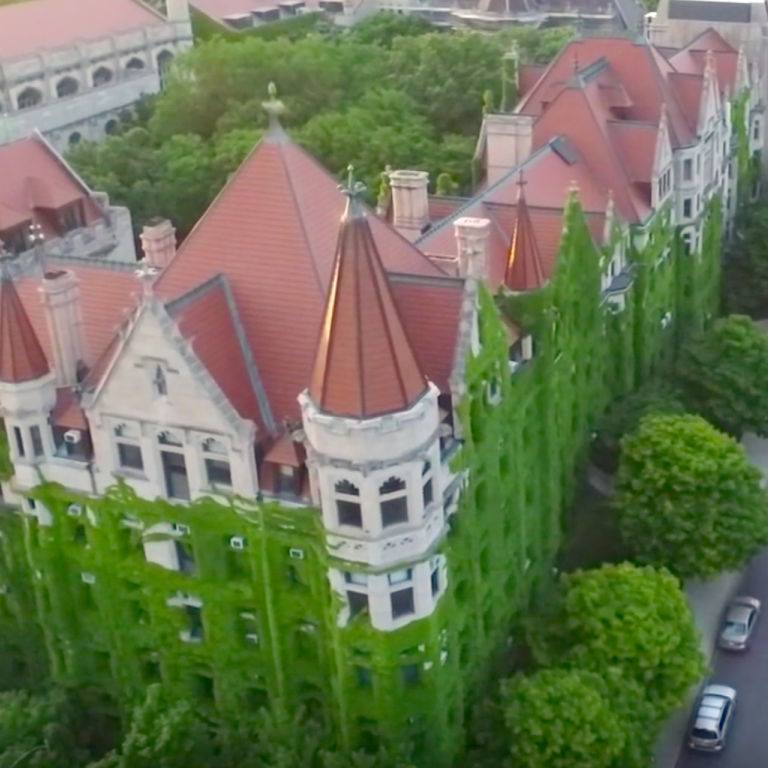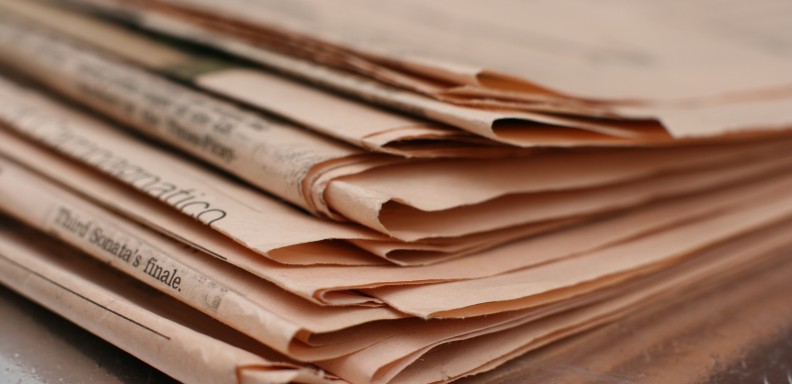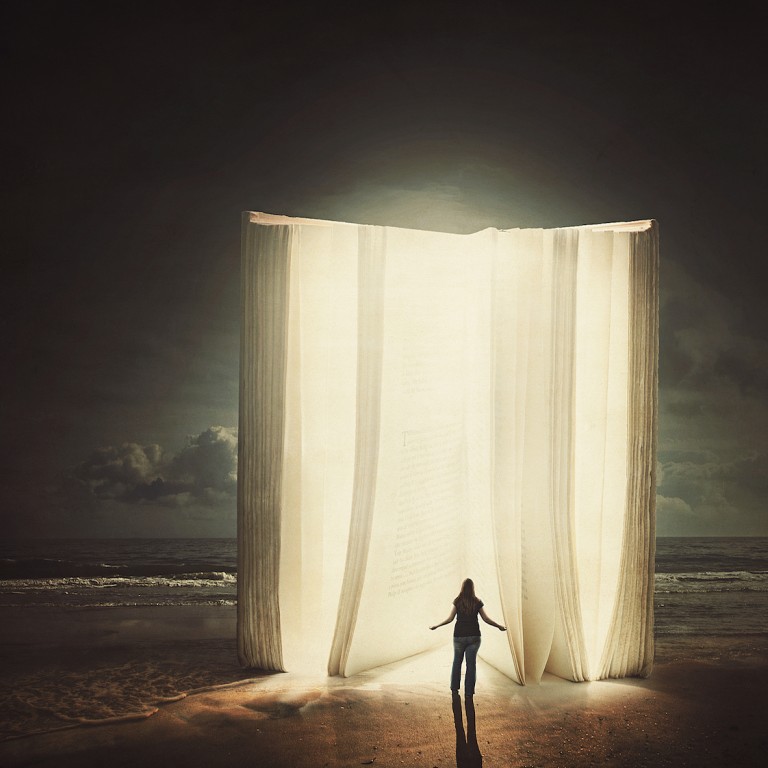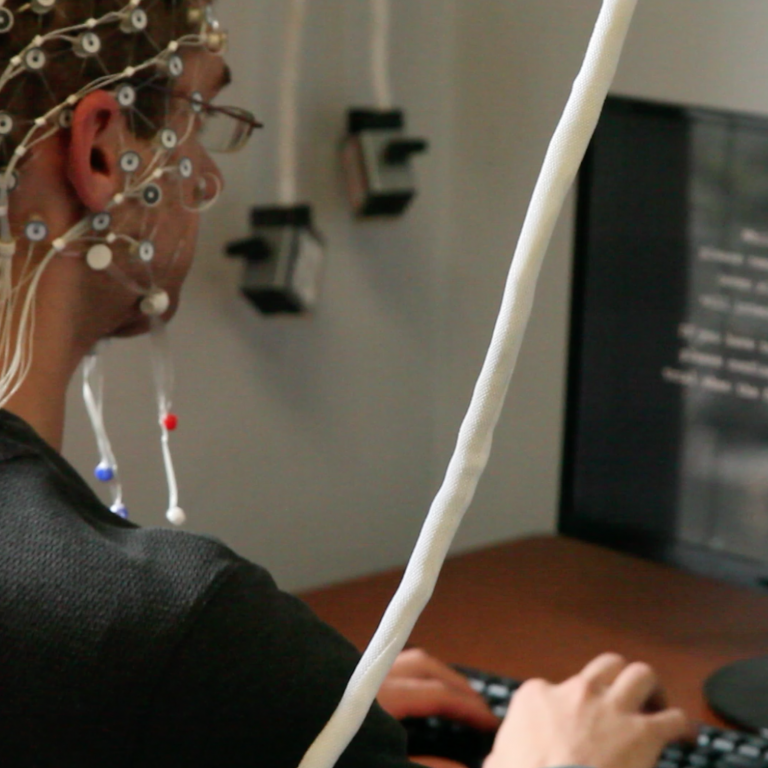by Evan MacDonald, Cleveland.com
The coronavirus pandemic made even the most simple tasks, like going to the grocery store, feel like an episode of the dystopian science fiction TV series “Black Mirror.”
The restrictions placed on daily life forced many Americans to alter their habits and everyday routines, and those changes can be jarring. Many stores have started limiting their capacity leading to lines outside the entrance. Inside, shoppers in face masks try to stay at least six feet apart as they scramble for meat, toilet paper and hand sanitizer.
Most people communicate with strangers through non-verbal glances and facial expressions, but that’s nearly impossible when they’re wearing a mask. Shoppers instead go about their business in a zombie-like trance, silent and hyper-aware of everything they’re touching.
Human beings are inherently social, so they’re used to making connections and feeling comfortable in the presence of others. That has changed thanks to the pandemic’s uncertainty, because it’s impossible to tell if another person is carrying the virus, said Dr. Alexandra Solomon, a clinical psychologist and professor at Northwestern University.
"Right now, we are viewing other people as threats who are literally potentially deadly to us," Solomon said. "That's very different."
For many Americans, going to a grocery store or picking up a take-out order had been routine. There are certain expectations for those familiar tasks, so you don’t need to expend much mental energy to accomplish them. It’s now much more stressful to remain mindful of every surface you touch and whether you’re standing six feet apart from the nearest shopper.
“Because we’re not able to fall back on our natural habits, we’re expending a ton of energy to do what might seem like simple, basic things,” said Dr. Kaz Nelson, the vice-chair for education at the University of Minnesota’s Department of Psychiatry. “And it’s absolutely exhausting.”
Part of the reason many Americans are feeling so disjointed is the fact their lives have been stable for years. Experts noted that for some communities, things might not seem as different. People living in poverty are likely more familiar with the anxiety that comes from concern over the food supply, and people of color likely have prior experiences of others avoiding them on the street, they said.
For those used to living in relative privilege, though, there's a great deal of uncertainty about the coming months. And that uncertainty permeates everything, Nelson said.
"It's sort of an existential threat, and we don't have a lot of practice, collectively, in managing these situations because of the relative stability we've had over the last several decades," she said.
Why does all of this feel so bizarre?
Human beings don't perceive their surroundings in purely physical terms; instead, they see things and interpret them. The mind is sensitive to small deviations from the norm, so unusual events grab our attention and focus, said Howard Nusbaum, a cognitive psychologist and neuroscientist at the University of Chicago.
These days, if you see a person trying to keep their distance from you on the street, it likely means they’re trying to adhere to social distancing guidelines. But that hasn’t been the case in the past. People usually interpret physical distance as someone disliking or fearing them.
"That's going to reduce our sense of understanding the world around us, make us feel distance from that world, and also maybe feel a little hesitant and concerned," Nusbaum said.
Face masks have also taken on a new context amid the crisis. They've typically been associated with sickness, because doctors and nurses wear them in hospitals. Now they're commonplace on the street, as public health officials have recommended that everyone wear face masks to prevent the spread of the virus.
In some Asian countries, people have been wearing face masks in public since the SARS outbreak in 2002. However, Americans still associate them with some dystopia, said Dr. Dolores Albarracin, a psychology professor at the University of Illinois at Urbana Champaign.
"The combination of deviation from what's routine combined with images of an apocalyptic future might explain our reactions," she said.
Face masks also present another issue for our public interactions. Most people communicate with strangers through glances or facial expressions. It's easiest to tell how a person is feeling by the look on their face. Smiling at someone conveys friendliness, while frowning signifies a feeling of displeasure.
That non-verbal communication is complicated if a mask covers half of your face. If others are unable to see your mouth, they’re left to guess how you’re feeling, said Dr. Shilagh Mirgain, a health psychologist with the University of Wisconsin’s School of Medicine and Public Health.
"When we don't get that nonverbal feedback, we feel more distance from one another, [and] it makes the other person feel less safe," she said.
For so many of us, the virus dramatically altered routine aspects of our lives. Civic and religious leaders urged against families against gathering to celebrate Passover and Easter. Many people have been unable to celebrate their birthday with a party. The virus also forced the cancellation of school proms, and many graduates will attend virtual graduation ceremonies.
Smaller aspects of our lives that we've taken for granted have changed, too. Americans are used to being able to run to the store to get something they need, or order it online and have it show up on their porch the next day. That's no longer the case, Solomon noted.
"We have become an ultra-consumer world, so there are consequences on our psychology when things are less available, and our movements are more restricted," Solomon said. "We feel affronted because we are used to being able to do what we want when we want."
Is this going to get any easier?
Most people are not used to living life on “high alert” every time they leave the house. A prolonged increase in day-to-day anxieties has obvious implications for a person’s mental health. It could also affect their physical health by making it more difficult for their immune system to function, Nelson said.
There is hope that people can adapt during this crisis, especially if they need to keep wearing face masks and social distancing until a COVID-19 vaccine is available in an estimated 12 to 18 months. Nelson noted that some people who suffer traumatic brain injuries need to relearn essential functions like walking, so she's optimistic people will get used to the new normal we're facing for the foreseeable future.
It might be some time before shaking someone else's hand is considered safe, and some public health experts have suggested the custom should be phased out of our culture altogether. For the time being, though, people could greet each other in public through waving, bowing or other gestures, the same way different cultures do, Nelson said.
"This is an opportunity to learn the best of these kinds of practices from other cultures, and to be a little flexible in implementing healthy behaviors to help keep our community connected and safe," she said.
Even something as simple as stopping to chat with someone in a grocery store could be helpful because it could help us feel more connected to others during the crisis, Mirgain said. She said it's important to maintain connections to others to keep us from feeling isolated.
"When we go through something stressful, if we go through it together with someone, whether in person with a family member or even reaching out to vent and debrief with someone virtually, that is something that can keep our mind and body and system in balance."
Nusbaum cautioned that if people do not make an effort to stay connected to others, they could adjust to feeling like it's reasonable to be scared whenever they leave the house. But he's optimistic that people will maintain their relationships through video chats and other forms of communication, and will eventually feel more comfortable.
“People have a remarkable ability to adjust to all kinds of things,” he said. “We lay down new base rates and expectations pretty quickly.”
Image courtesy of Siouxsie Wiles and Toby Morris
Read the article: MacDonald, E. (2020, April 30). Human behavior, anxiety and privilege underlie the dystopian feeling of our new coronavirus norms. Cleveland.com. Retrieved fromhttps://www.cleveland.com/news/2020/04/human-behavior-anxiety-and-privilege-underlie-the-dystopian-feeling-of-our-new-coronavirus-norms.html



